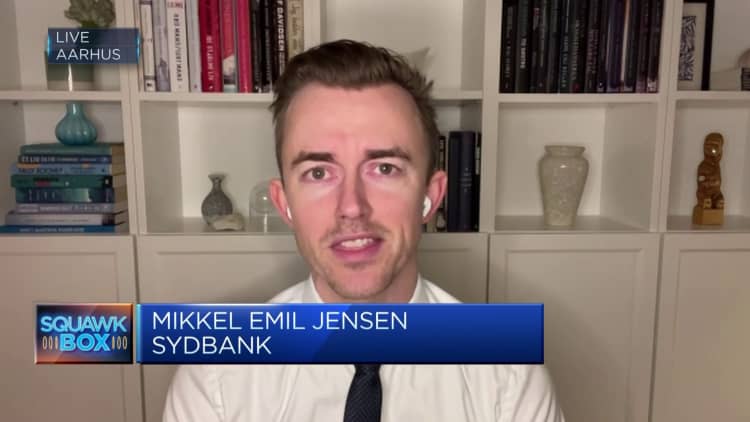
Shipping giant Maersk on Wednesday notched a second consecutive session of strong gains as investors assessed a ratings upgrade and its decision to prolong a halt on Red Sea travel due to safety concerns.
The Danish firm topped Europe's Stoxx 600 gainers, with its Copenhagen-listed shares provisionally closing up 5.1% following Tuesday's 6.4% rise. Shares of Germany's Hapag-Lloyd were also higher.
Goldman Sachs analysts overnight upgraded their rating on Maersk to neutral from sell. In a note, they said the increase in freight rates was likely to continue in the coming weeks as global shipping routes are disrupted, creating a shortage of vessel space over the busy pre-Lunar New Year period.
Maersk began rerouting ships along the Cape of Good Hope route around southern Africa on Dec. 19, citing an unacceptable risk to its staff. This avoids the Red Sea, where ships from various carriers and counties have been targeted by Yemen's Houthi militants.
But it also means no access to Egypt's Suez Canal, which adds roughly 30% onto trips between Asia and Europe, constraining global container capacity.

Uncertainty remains despite a U.S.-led military effort to curb the attacks. Maersk had resumed the Suez route, but suspended it again in recent days after one of its ships was targeted by missiles and small boats.
Asia-Europe is Maersk's biggest trade lane, and freight rates on the route have roughly tripled from their early December levels, the Goldman Sachs analysts said, while "the impact on annual contract rates is likely to be positive, albeit dependent on how the security situation evolves."
Maersk's other major routes are seeing "positive second-order effects from the Suez disruption." Global trade is also being stymied by drought in the Panama Canal.
However, analysts do not currently foresee the same level of global supply chain disruption and capacity constraint as experienced during the Covid-19 pandemic, which triggered a huge spike in freight rates and record profits for companies including Maersk.
That is largely because the shipping industry has more recently been in a situation of oversupply. Goldman Sachs said its base case for Maersk in 2024 is "now a 'muddle-through' scenario instead of deepening price competition."

Unlisted French shipping group CMA CGM on Tuesday said its container shipping rates from Asia to the Mediterranean region would be up to 100% higher from Jan. 15, versus Jan. 1.
The Red Sea issue is "financially good for the carriers," Mikkel Emil Jensen, senior analyst at Sydbank, told CNBC's "Squawk Box Europe" on Wednesday. "You are pulling out capacity from the market at a time when demand is not very strong."
Freight rates are "increasing significantly and they will be increasing more than whatever the cost will be to sail around Africa."
The impact on consumers, however, is likely to be increased transit times, worsening of reliability and a potential increase in prices, Jensen said.


